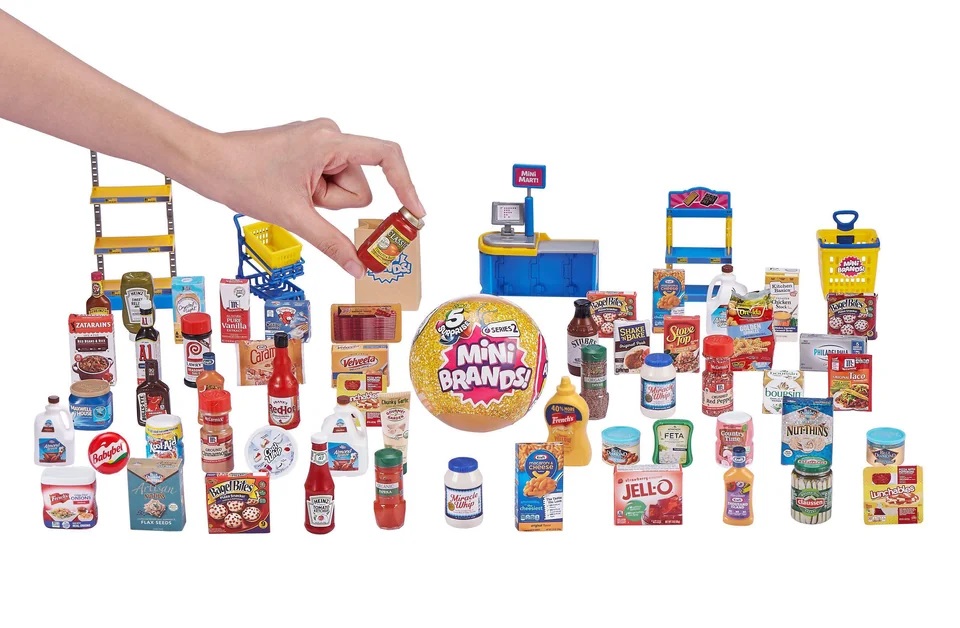Advertising is more ubiquitous than ever, with children now exposed to hundreds of commercials on TV, the internet, and billboards every day. But one worried Redditor has sparked a debate about a less obvious brand platform: children's toys.
Posting in the r/Anticonsumption subreddit, the Redditor shared an image of multiple branded toy foods. Some of the miniatures on display include a Heinz ketchup bottle, Miracle Whip, and a Babybel.
"What child wants a mini jar of paprika or Thousand Island dressing? Are kids so obsessed with brands these days that they will buy anything that's branded?" they wrote.

In some ways, toys like this are a natural phenomenon, where children imitate adults as part of their pretend play.
Pretend play is a fundamental part of children's development, and they will often immerse themselves in imaginary scenarios in which they imitate what they see adults doing daily.
This can involve kitchen play, which toy foods, utensils, and pretend appliances can help to facilitate.
But there is a fine line between kitchen play and exposing young people to yet more advertising. One study, published in ScienceDirect, found that kids were exposed to an ad nearly every minute, encountering an average of 554 brands in one 10-hour day.
This exposure can foster unhealthy habits in children, who lack the critical thinking to reject branding messages, as detailed by the American Psychological Association. Multiple studies have revealed a link between TV commercials and a preference for unhealthy foods, for example, contributing to childhood obesity.
The UK's Badvertising campaign has also made the case that advertising can increase consumerist behavior in general. In particular, by promoting high-pollution products, it can encourage environmentally unsustainable habits.
That might mean buying high-emission SUV cars, choosing to take more flights, or something as simple as buying more products than we need — fast fashion items or a new smartphone, for example.
The production, transportation, and waste generated by this unfettered consumerism has been linked to increased air pollution and waste production.
Branding's impact on impressionable young minds has consequences beyond children's behavior then: It could help to fuel the overheating of our planet.
"Of course kids like playing grown-up, including play shopping and cooking, and that's fine. Kids have been doing that forever," one Redditor wrote. "What isn't fine is the way these products are designed to imprint brands on children's developing brains."
"It happens a lot in kids movies if you pay attention too," another chimed in.
"It's especially manipulative with food items, since preferences for comfort food developed in childhood tend to stay with us for life," added another. "Brands are just priming the next generation of their loyal customers for the next 60-70 years."
Join our free newsletter for easy tips to save more, waste less, and help yourself while helping the planet.









